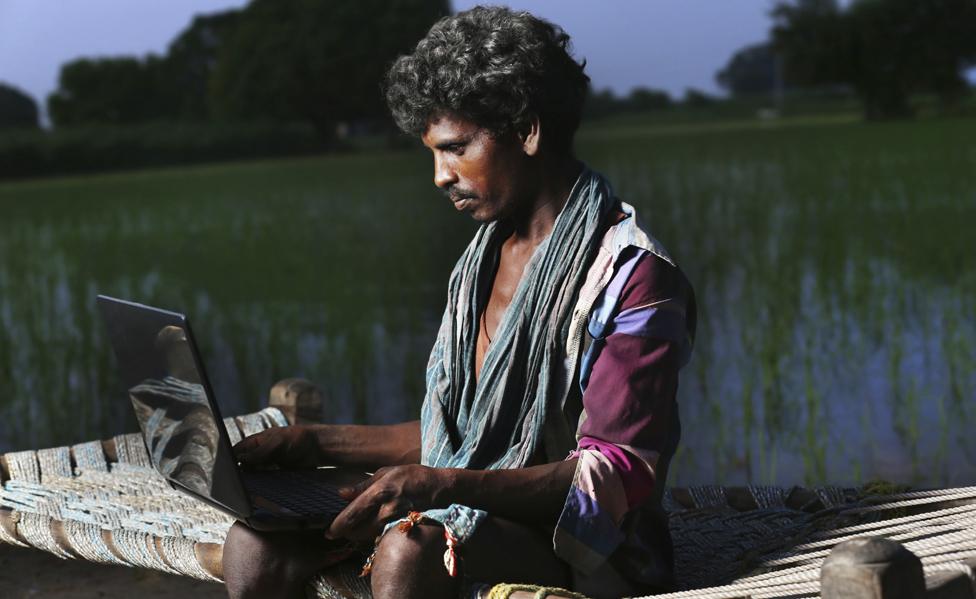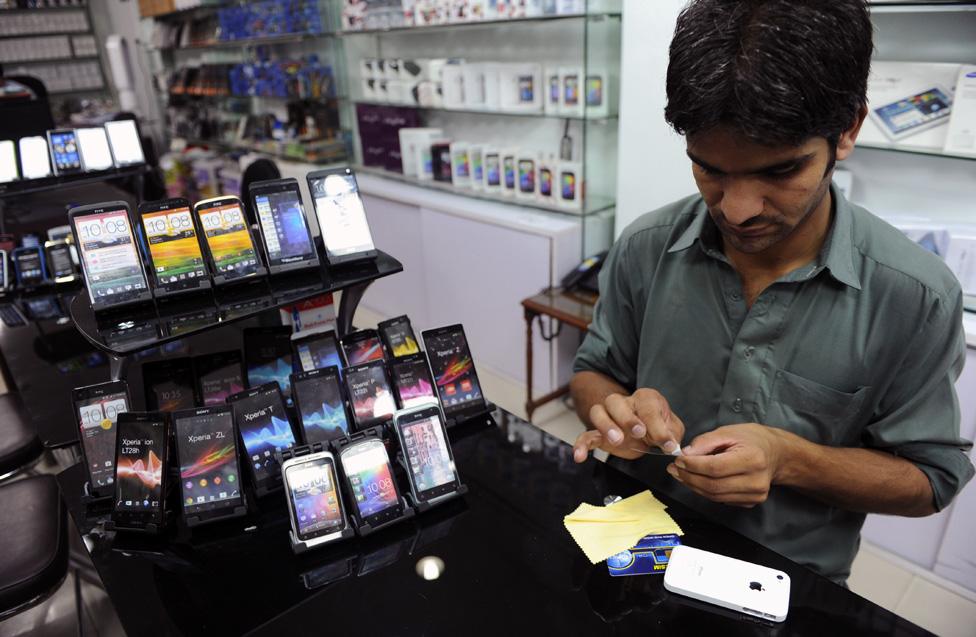The internet - not an equaliser
- Published
- comments

Access to information is having an impact on the incomes of many groups, notably farmers
Here's the story about the global impact of the internet. In the last 20 years, the digital revolution and its leapfrog technologies have allowed developing countries to close the gap with richer nations, and have brought huge advances in health, education and transparent government.
Well, not quite, according to the World Bank. Its annual World Development Report, this year entitled Digital Dividends, external, pours some cold water on that utopian view. True, it sees plenty of good things emerging from the advance of technology, but it warns that poor governance and a lack of skills is making it hard for all of those benefits to be realised even once countries do get connected to the internet.
This mammoth report, the work of droves of World Bank economists with access to huge troves of data, is full of fascinating nuggets. Who knew that Tuvalu was the world's most expensive country to make a mobile phone call? Or that in the UK we spend on average 0.47% of our monthly income to run a mobile phone, while in the Democratic Republic of the Congo it's more than 50%? Or that in India, now thought of as a nascent technology superpower, more than a billion people still aren't connected to the internet?
From this ocean of data, a nuanced picture emerges of the balance sheet for the digital revolution in the developing world. On the positive side, access to the internet is spreading to developing countries far more rapidly than was seen with previous technologies.
Access to information is having a positive impact on the incomes of many groups, notably farmers. In Pakistan they have been able to shift to more perishable but lucrative crops because of information they get from their phones, while in Honduras getting market prices via text message is reported to have given them a 12.5% increase in the prices they receive.

An employee pastes a screen protector onto a mobile phone at a shop in Islamabad
Then there are the benefits for gender equality, particularly in the Middle East, where women have found it much easier to set up businesses online than in the "real" world. Another example - a project in the Indian state of Kerala to outsource IT work to cooperatives of women from poor families, 90% of whom had not previously worked outside the home.
But then there is this stark line in the report: "The lives of the majority of the world's people remain largely untouched by the digital revolution." That is because there is still a lot of work to be done to get billions of people online, but even when they are connected there seems little evidence that developing nations are closing the gap with the richer countries.
The report talks of "information inequality", with a slower, less useful internet being offered to new users, who are then not being given the skills to make good use of the technology. It points to the fact that there are more contributions to Wikipedia from Hong Kong than from all of Africa, despite the fact that there are 50 times as many African internet users.
Then there is the question of the impact of technology on jobs. Right now IT is generating fewer jobs in developing countries than in the wealthy nations - 1% of the workforce on average, compared with 3-5% in OECD countries. But the report looks ahead to the coming robot revolution and predicts that the impact of automation will be a big threat to jobs in all parts of the world, both for manual workers and for people whose office skills will soon become redundant.
Not exactly an inspiring message then - the benefits of the digital revolution have been slow to arrive in developing countries and just as they get there the negative impacts will start to kick in.
The World Bank says the answer is to bring in "analogue" measures - better regulation, more open government and a focus on improving skills - in tandem with the roll-out of connectivity.
But perhaps the best corrective to this gloomy message about meagre digital dividends would be to ask people in developing countries whether they would now prefer to live without mobile phones or the internet. My sense is that there is still huge optimism in countries like Kenya and India about the life-changing potential of technology - coupled with a growing awareness that realising this digital dream is going to take time, effort and wisdom from their governments.